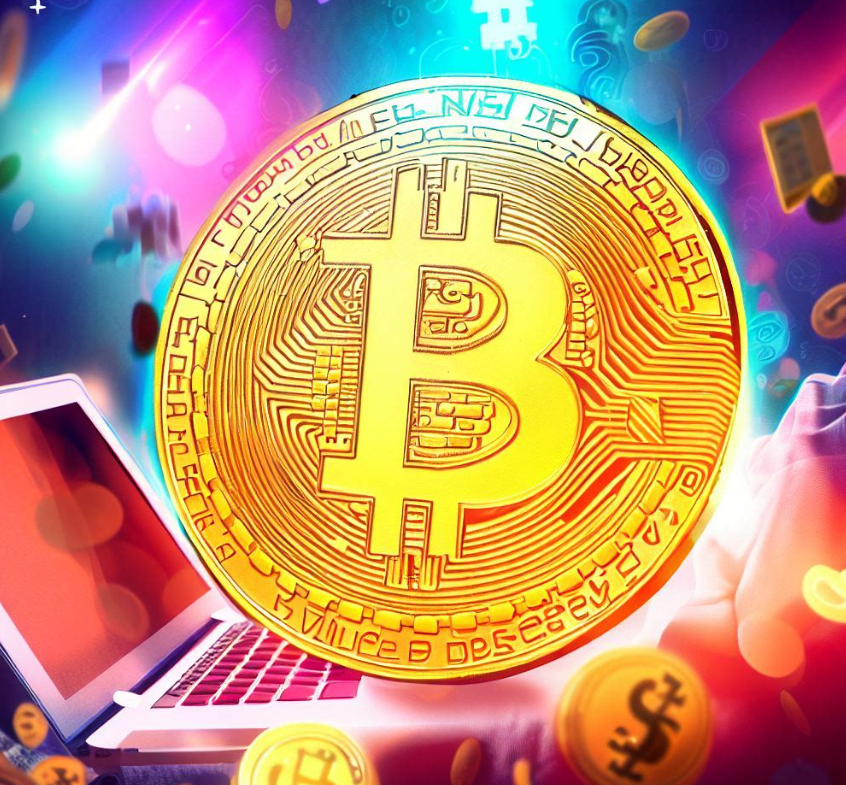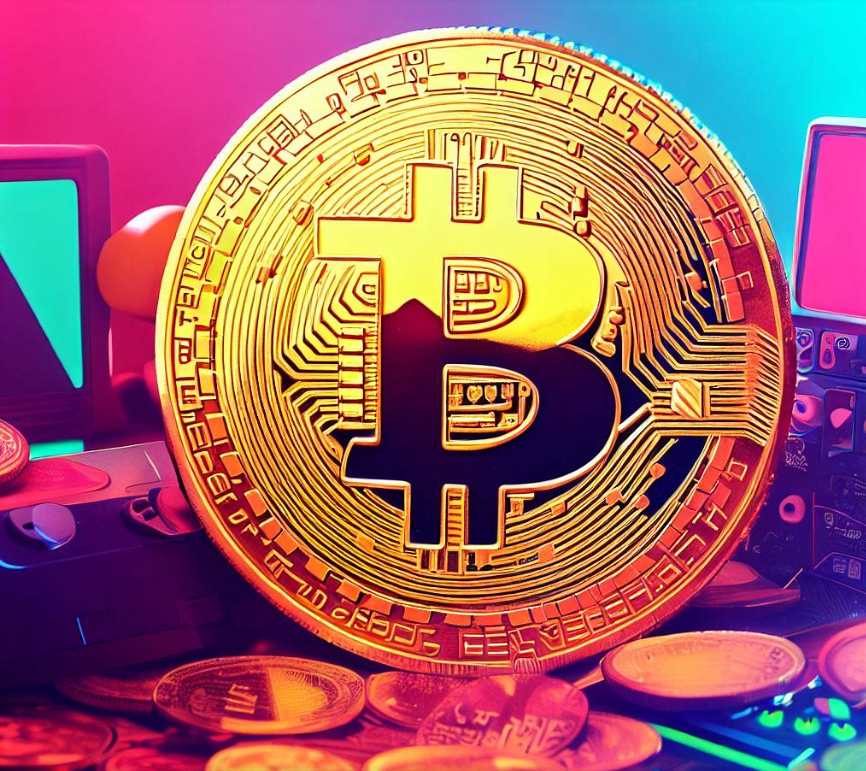Cryptocurrency has emerged from the peripherals of tech-savvy conversations to occupy center stage in the arena of popular culture, inducing a seismic shift in the global understanding and appreciation of digital assets. From its initial obscure existence regarded as a plain experimental economic venture, it garnered worldwide acclaim to become a much talked about, significant phenomenon.
This awe-inspiring leap towards fame could be traced back to Bitcoin, the pioneering cryptocurrency that took the world by storm. Anonymously ushered into existence in 2009 by a shadowy figure named ‘Satoshi Nakamoto,’ Bitcoin was strategically positioned against the backdrop of digitization. It served as an impressive digital counterpart to the conventional physical currencies that dominated the financial world. Charged with revolutionary concepts of decentralization, iron-clad security, and unassailable anonymity, Bitcoin intrigued audiences, paving the path for an impressive array of cryptocurrencies that followed suit.

Given their unique attributes, Bitcoin and its crypto counterparts didn’t take much time to turn into popular discussion topics. Their influence permeated beyond monetary affaires to have a discernible impact on the entertainment industry as well. Musicians, not oblivious of this emerging trend, started embedding mentions of Bitcoin in their lyrical compositions. Concurrently, television narratives and movie plots started exploring themes intertwined with the world of cryptocurrency. The result was a broad portrayal of cryptocurrency, lurking in the fabric of entertainment, which in turn paved the way for its demystification among common folk.
This effective infusion of cryptocurrency in mass consumption media was a turning point, triggering a wave of curiosity about this digital financial revolution. It served to spark an interest in the audience about the underlying blockchain technology, a sophisticated arrangement that forms the backbone of these digital transactions. Deranged from obscurity, cryptocurrencies became a household name, resonating within corridors of living rooms worldwide.
While Bitcoin was blazing trails in the digital space, various alternative cryptocurrencies, or altcoins, vied for attention in this burgeoning marketplace. Their shared objective to provide a decentralized, secure, and anonymous mode of transaction was in alignment with Bitcoin’s trailblazing path, pushing them into the forefront of digital finance. Contributing to the ever-evolving narrative of cryptocurrencies, these altcoins are crucial pieces in the intricate digital finance puzzle.
As the world continues to reel under the profound impact of digitization, understanding and embracing cryptocurrencies have grown to be more of a necessity than an option. Straying away from the realms of niche tech circles, they have invaded the popular space, dictating significant changes in the traditional finance paradigm. And as history stands proof, this is just the tip of the iceberg. The full potential of this digital revolution is yet to be unleashed.
Cryptocurrency Memes
Cryptocurrency has found its unique place in pop culture, with a special credit to memes. This facet can be considered unanticipated, but the impact these memes have had is substantial. Undeniably, in this era, the cultural potency of memes is evident in various sectors, including cryptocurrency. With their inherent talent, memes break down complicated concepts into manageable, comprehensible, and conveniently humorous pieces of information for the masses.
An apt example of the intertwined relationship between cryptocurrency and memes is Dogecoin. Constructed in 2013 by the duo Billy Markus and Jackson Palmer, Dogecoin was initially conceptualized as jest. Its nomenclature draws from a well-known meme on the internet, the ‘Doge,’ featuring a Shiba Inu canine. This creative pairing of humour and modern technology managed to garner the interest of a wide swath of internet users it even went beyond the creators’ wildest dreams by breaking into the mainstream consciousness.
With this remarkable ascension, the joke cryptocurrency began to be taken seriously. Despite originating in humour, Dogecoin soon acquired substantial market value. This momentous journey wasn’t a part of its creators’ intentions, but the light-hearted and satirical commentary on the typically serious and unpredictable cryptocurrency market turned out to be its unexpected fortune.
Dogecoin’s amusing approach to a volatile market landscape made it stand apart from other cryptocurrencies. Its unique positioning as a ‘fun’ version of digital money that has real-world value established it as a prominent topic of conversation, particularly in pop culture forums. Reflecting on Dogecoin’s sensational evolution, it’s evident that the meme coin’s popularity is directly related to its very basis in humour and internet culture.
The tale of Dogecoin offers valuable insight into how memes, often disregarded as frivolous internet culture, can wield substantial influence in shaping perceptions and dialogue in not just the world of cryptocurrencies but the broader financial market. It thoroughly demonstrates how the digital age has transformed the way modern society communicates, consumes media, and evaluates financial investments.
It’s clear that memes have become an integral part of the digital currency pop culture narrative, largely due to their versatility in spreading information and the relatability brought upon by their humour. It is through this formula of engagement that Dogecoin, a simple meme, could revolutionize the traditional understanding of currency.
Cryptocurrency Introduced into the Mainstream
The revolution of cryptocurrency began with Bitcoin, over a decade ago, establishing its solid footprint in the modern world. Shaping up as an essential part of our everyday lives, the vision of a cashless community where digital currencies dominate is progressively becoming a practical reality.
The prevalence of cryptocurrency is prominent across sectors, be it in online retail businesses or a humble eatery. Digital coins, as a mode of transaction, are gaining widespread acceptance. Recognizing the potential of this digital age, numerous businesses are boarding the cryptocurrency bandwagon, manifesting their progressive adaptation to the changing times.
The widespread acceptance and popularity of cryptocurrency hasn’t just been confined to businesses. Some of the most influential public figures have also significantly contributed to this financial revolution. Notable personalities like Elon Musk, Snoop Dogg, and Ashton Kutcher stand among many who have publicly advocated for cryptocurrencies, amplifying their influence and fueling public curiosity and interest.

Cryptocurrency has gone beyond just business transactions; it has made its mark in the sports industry as well. Multiple clubs are contemplating the implementation of token-based systems for not just merchandise sales but also for fan engagement initiatives, thereby widening the scope of cryptocurrency.
The advent of blockchain technology and the introduction of innovative features like Non-Fungible Tokens (NFTs) endorse the versatility of cryptocurrencies. Several celebrities have utilized NFTs to leverage their popularity, while artists employ them to commercialize their digital art. This exemplifies the substantial cultural impact of blockchain technology and cryptocurrency. What initially began as a technological novelty has evolved into an inseparable part of pop culture and commerce.
Breaching the confines of being exclusive digital assets, cryptocurrencies have morphed into a global cultural and business event of profound magnitude. The regular amalgamation of cryptocurrency into diverse life aspects signifies the onset of a transformative era. It’s an age, which tenaciously encourages progressiveness and steadily moves ‘From Memes to Mainstream,’ gradually eliminating the barriers between the real world and the virtual world. Thus, the discourse around cryptocurrencies continues to grow, impacting society and the economy while paving the way for potential future advancements.